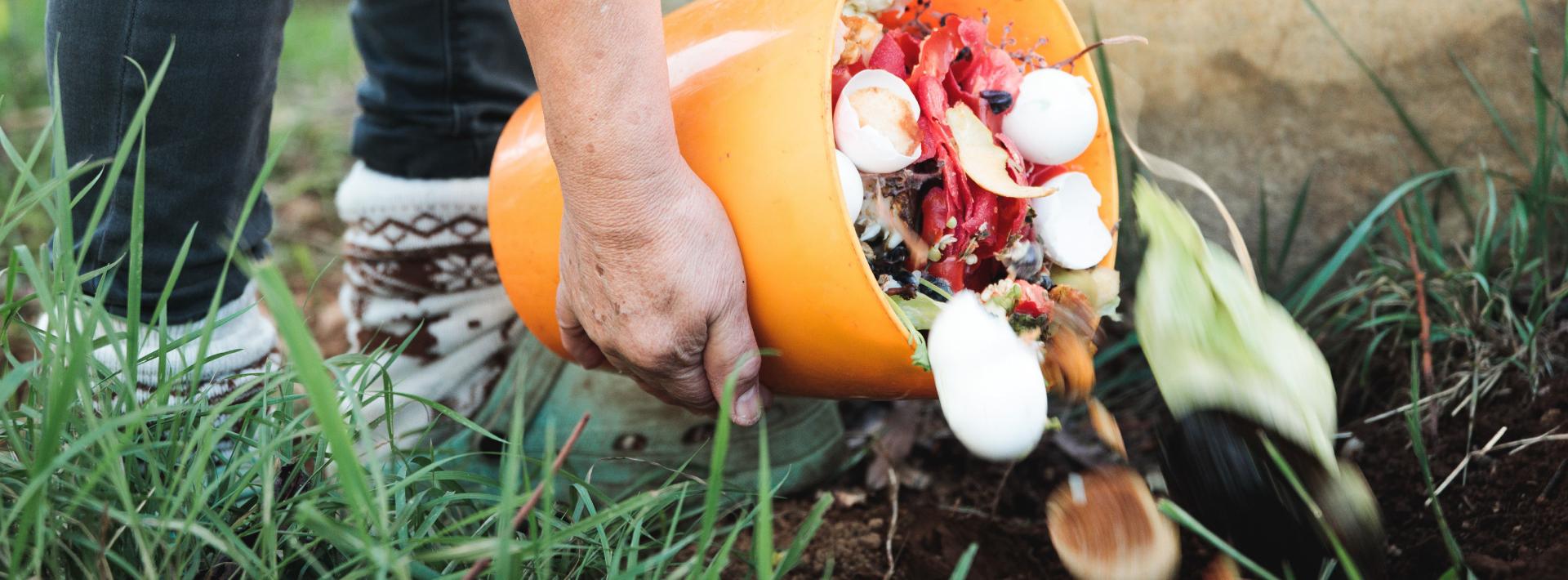Friday, Jan. 26, 2024 — Cleveland — Yesterday, the U.S. Department of Agriculture (USDA) announced an $11.5 million investment in cooperative agreements that support innovative, scalable waste management plans to reduce and divert food waste from landfills.
The $340,961 awarded to Cleveland will help the city expand drop-off residential composting locations, increase waste diversion and access to composting services, and provide subsidized monthly subscriptions to composting services to SNAP-eligible households.
Local partners in this effort include Rust Belt Riders, Rid-All Green Partnership and the Cuyahoga County Solid Waste District.
Rust Belt Riders, an employee-owned, Cleveland-based commercial and residential composting small business, has been partnering with Rid-All, an urban farm in the Kinsman neighborhood, over the past year to compost food waste from West Side Market. They also partner with the Hunger Network to distribute produce that is still edible to pantries and those in need.
“This award will go a long way in helping us grow a sustainable program that not only turns food waste into healthy soil, but also supports local, employee-owned small businesses,” said Mayor Justin M. Bibb. “Food waste is the single most common material in our landfills and is responsible for significant methane emissions. The more we can divert out of the waste stream, the better for our people and our environment.”
The Composting and Food Waste Reduction cooperative agreements, which are funded by the American Rescue Plan Act, are part of USDA’s broad support for urban agriculture. The program is jointly administered by USDA’s Office of Urban Agriculture and Innovative Production and the National Institute of Food and Agriculture (NIFA). The recommended projects will be implemented between now and 2026.
“Programs like this are a great way to turn waste into a valuable resource,” said Cleveland City Councilman Kevin Bishop, a cosponsor of the 2022 legislation establishing the composting pilot program. “I am proud of the work our city is doing toward a greener future.”
In their selection process, the USDA prioritized projects that anticipate or demonstrate economic benefits, incorporate plans to make compost easily accessible to farmers, including community gardeners, integrate other food waste strategies, including food recovery efforts and collaborate with multiple partners. The collaboration between NIFA and the Office of Urban Agriculture and Innovative Production is part of USDA’s framework to transform the U.S. food system to benefit consumers, producers and rural communities by providing more options, increasing access, and creating new and better markets for small and mid-size producers.
“Using food scraps to create healthy soil, engage residents and reduce landfill trash is a major step toward a more circular economy and a more sustainable city,” said Sarah O’Keeffe, Cleveland’s Director of Sustainability and Climate Justice. “We are grateful to the USDA for their support of this important initiative.”


